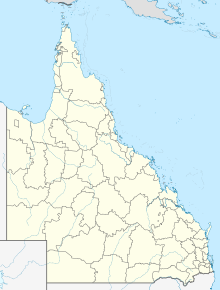Adani’s Galilee Basin rail line on track – Korean’s win contract
Despite the negative sentiment and complaints from all corners of Australia, the Galilee Basin project refuses to wither away and fade into oblivion.
The idea of a massive coal mine, which would have the potential to generate many thousands of jobs for Queensland is still ‘top of mind’.
It’s especially so for the companies and visionaries who have not only invested billions into developing the coal-rich Galilee Basin, but see the project coming to fruition.
One of the biggest hurdles for the project is getting the coal from deep within the Queensland interior to the ship loading ports like Abbot point.
Owing to the vast distance and fallout from angry farmers who insist their livelihoods will be trashed because of the railway corridor and subsequent construction that will take place, there has been opposition to the project.
There are a number of mining companies and joint venture partners vying for a slice of the Galilee Basin coal action. Adani, GVK and Clive Palmer’s China First mine are the main players who each seek to dig out the precious resource.
Queensland railways have never been forthcoming in developing and expanding their rail corridors to service mining companies and their remote mines.
The usual story is that mining companies are forced to invest billions of dollars in constructing their own railways. So tight is competition and ‘oneupmanship’, that each mining project would mean constructing a separate rail network. This is because mining companies fear being ‘controlled’ by another mining company who holds the exclusive rights to the rail corridor.
As with most rail network deals, the ‘take or pay’ agreements that are common right across the freight industry in Australia have created huge financial� issues for mining companies.
Take or Pay explained
What this means in simple terms is, a contract is signed for a period of time to allow a mining company to use a rail network to transport its coal to whatever destination is required. Usually this is a stock piling facility close to a major port.
Let’s stay with the Australian coal sector where take-or-pay arrangements are common in port and rail contracts and supply contracts for mining equipment and raw materials transport. These ‘take or pay’ contracts worked to guarantee minimum demand levels for rail or port facilities or equipment over long periods of time.
The effects of these ‘take or pay’ contracts are noticeable when weakening coal prices leave Australian mining companies and their customers exposed to obligations to take or pay for mining products, services and commitments they may not have a use for.
In other words, mining companies get charged for services they don’t use, but because of a contract – which could run for many years, they have to keep paying for the service and money is poured down the drain.
The result of which is catastrophic on the balance sheet and eventually affects the profitability of the company.
With each mining company owning their own rail network, the risk of such ‘take or pay’ contracts are mitigated.
$16 billion Carmichael mine
Always erring on the side of caution, Indian power and energy company Adani, which has invested billions into the Queensland coal mining industry, continues to push ahead in its resolve.
Adani is so confident of developing this new coal mine in the Gailee Basin it has signed a $.2 billion contract with Korean company Posco to construct the 388km railway line to connect the Carmichael mine to Abbot Point. Adani inferred that Posco will assist in funding the rail network by buying an equity stake in the Carmichael coal mine project.
The proposed new railway line, which is a single gauge will also join up with� an established rail network in the Bowen Basin which is located South of the Galilee Basin. Some 60 million tonnes of coal per year is expected to be transported from the mine.
Adani`s Indian billionaire owner Gautam Adani, said. “The rail project will lead to the opening of the Carmichael mine project, and will also provide vital opportunities for Australian infrastructure development and contribute to energy security of India by lighting the lives of millions of Indians”.
Carmichael mine construction timeline
Adani is still waiting final approval from the Australian federal government for its massive coal project, but made a point of acknowledging that work on the new rail corridor will begin early in 2015.
At 10 billion tonnes of high quality thermal coal under it’s grassy knolls, the Carmichael mine is considered by some to be the largest single coal tenement on the planet.
Mr Adani was also quoted as saying “the Galilee Basin Carmichael mine project will deliver in excess of 10,000 mining jobs”.
This is incredible news for the people of Queensland. Although the project is still in its infancy, people looking for a slice of the mining jobs action would be wise to start taking the project seriously and prepare for a career in the industry.
Stay up to date with developments in the Galilee Basin and be the first to learn about how the Carmichael mine project will transform people’s lives in the region. Get iMINCO Project News each week. The service is free and cancellation is as easy as the click of a mouse button.








